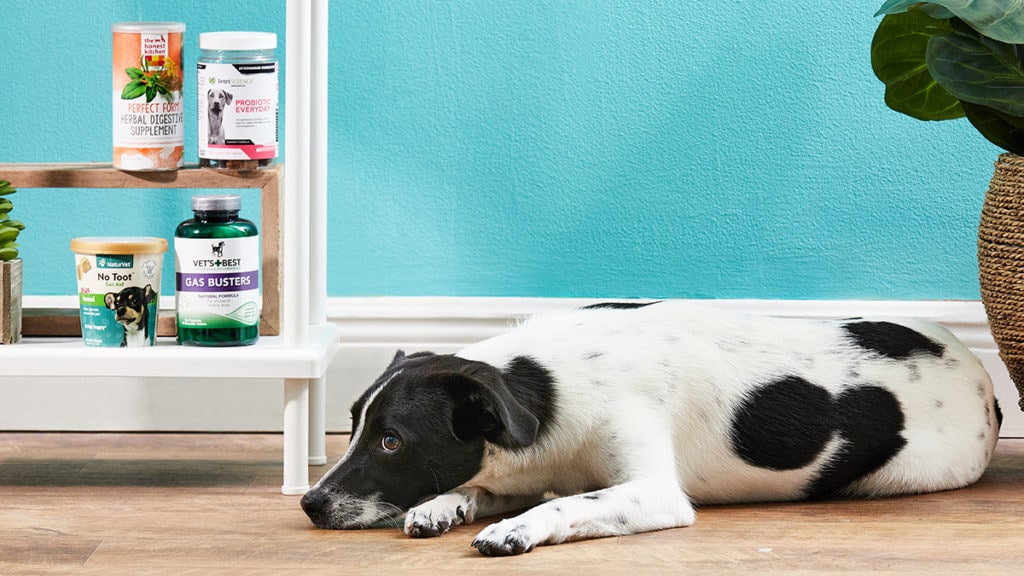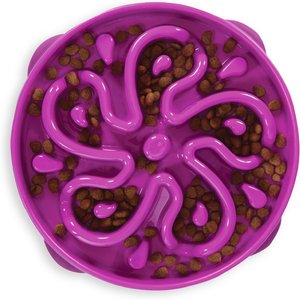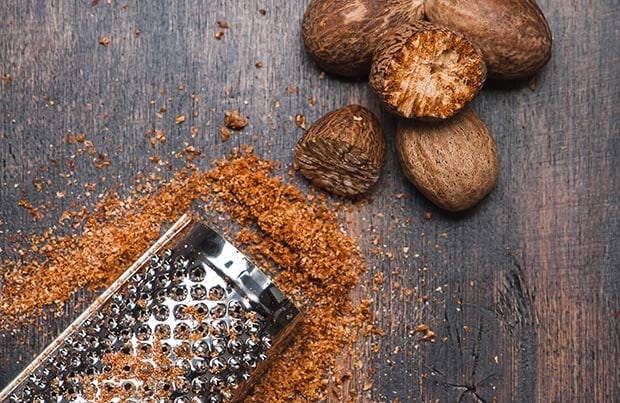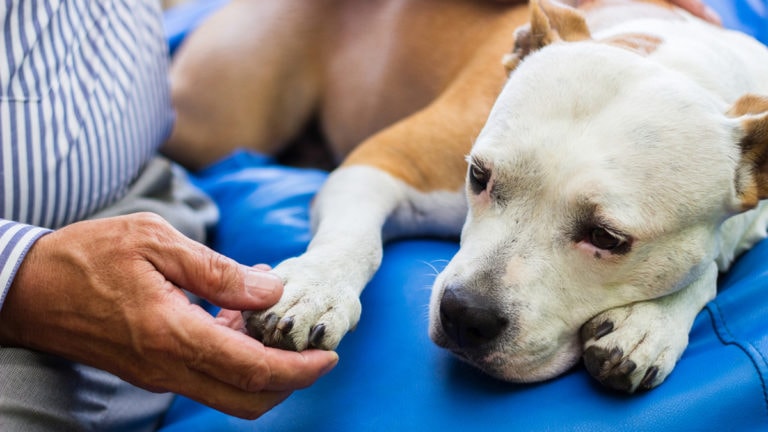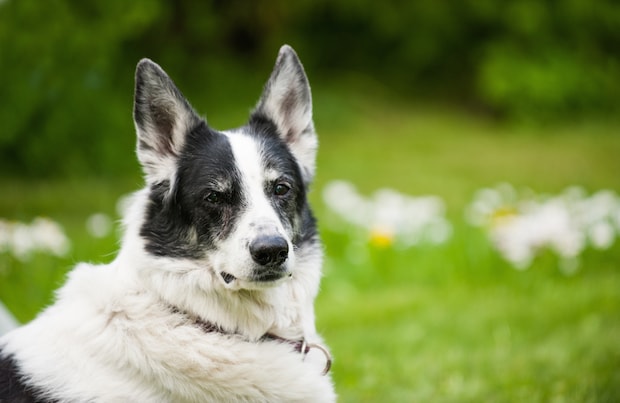Call it whatever you please—gas, farts, toots, flatulence, the vapors—dog farting is a stinky fact of life! Trying to stop dog farting completely isn’t really feasible, but there are things you can do to minimize the amount of wind breaking happening in your house.
Also, it’s important for pet parents to pay attention to gas in dogs to make sure there’s not excess gas. Especially smelly dog farts can also be a sign something’s not quite right. For all the details on this smelly subject, keep reading.
Why Do Dogs Fart?
Farting is simply the body’s way of releasing gasses that have accumulated in the digestive system. Essentially, the bacteria that normally live there break down nutrients that your dog’s body can use. Though this is a necessity for your pup’s health, the downside is that it can cause your dog to fart a lot. Blech!
Every dog’s situation is unique, so it’s impossible to say just how much farting is normal across the board. However, if you’ve noticed any of the following them it’s time to call your vet:
- Your dog is farting a lot more than is typical
- The farts have become super smelly
- Their farting is associated with other gastrointestinal issues, like diarrhea, constipation, or a tender tummy.
Why Does My Dog Fart So Much?
While occasional farting is a fact of doggy life, excessive gas in dogs happens for a few key reasons:
Swallowed Air
Dogs that eat quickly often swallow air along with their food. If they don’t burp up the air, then it’ll exit the body in—you guessed it—farts. Brachycephalic breeds (short-nosed dogs) tend to swallow a lot of air throughout the day due to their atypical anatomy, so they may be more prone to farting.
Diet
The foods your dog eats are largely responsible for flatulence. Dog foods that are low in quality or contain lots of peas or beans can lead to large amounts of gas. These ingredients are often incompletely digested, leaving lots of nutrients for bacteria within the intestines to work on.
A similar situation can occur when a dog is lactose intolerant. Lactose that might otherwise break down earlier in the digestive system makes it into the colon. This leads to gastrointestinal issues, including excess gas.
Dogs can also fart a lot if they get into the trash or have access to unusual foods. You might want to stop feeding your dog brussels sprouts, pieces of meat, or other non-approved doggy foods from the table!
Diets that contain a lot of meat may lead to especially stinky farts due to their high sulfur content.
Health Problems
Disorders that alter that way your dog’s digestive system is supposed to function can also lead to farting. Possibilities include:
- Inflammatory bowel disease
- Irritable bowel syndrome (IBS)
- Intestinal parasites or infections
- Cancer
- Food allergies or intolerances
- Pancreatitis
- Exocrine pancreatic insufficiency
In these cases, excess gas is usually combined with other symptoms such as vomiting, diarrhea, changes in appetite, and weight loss.
How to Reduce Excessive Dog Farting
If you have any concerns about your dog’s well-being or diet, talk to your veterinarian, but there are steps you can take at home to reduce excessive farting in an otherwise healthy dog.
The Impact of Nutrition on Dog Farting
Since diet plays such a big role in gas production, it makes sense to start here.
The first thing to do is simplify your dog’s diet. For at least two weeks, eliminate treats, table scraps, and anything unusual your dog might be eating. If the farting improves, you have narrowed down your list of culprits.
If simplification doesn’t do the trick, look at the dog food you are offering. Remember, though, that all dogs are different. Dr. Betsy Brevitz, DVM and author of the Complete Healthy Dog Handbook cautions, “Dogs are highly individual, so things that bother one dog won’t bother another one.”
Start with a diet that is labeled for dogs with a sensitive stomach or as being highly digestible. Also, avoid foods that are extremely protein-rich, are high in fiber, or contain peas, beans, or dairy products. Another option is to go for a limited ingredient food like one based on chicken and rice. Experiment until you find the diet that works for your pooch.
Regardless of what diet you choose for your dog, make sure they’re not eating their food too fast. Food puzzles or specially designed bowls, like the Outward Hound Fun Feeder Interactive Dog Bowl, can help.
How Exercise Can Reduce Dog Gas
Lack of exercise can also lead to dog farting. Dr. Brevitz says, “Exercise helps dog gas work its way out more gradually instead of building up."
If your dog is still producing large amounts of gas after a diet change, bump up their exercise routine. Go for longer walks, play more intense games of fetch, or find a place where your furry friend can run off-leash for a while.
Best Supplements for Your Dog’s Digestion
Certain supplements and herbs can also help with your pup’s digestion and curb dog farting. Talk to your veterinarian to see if the following remedies would work for your farting furball.
Probiotics
Like many mammals (including humans), your pup’s gastrointestinal tract is teeming with bacteria. Probiotics contain billions of helpful bacteria that can maintain a healthy gut and aid in digestion.
Vets frequently recommend probiotics when pets have diarrhea or are taking antibiotics (which can kill off good bacteria along with the bad). But you can also give them probiotics for general gassiness or for stressful situations, especially if your dog tends to suffer digestive system upset when he’s emotionally distressed.
Stick with a probiotic that’s made for dogs, which is specially formulated for the microflora in your pup’s digestive system. And always give them to your pup under your veterinarian’s guidance.
Fennel
Fennel seeds can relax the gastrointestinal tract and allow the gas to escape instead of building up, explains Dr. Rachel Barrack, DVM, an integrative veterinarian, certified Chinese herbalist and the owner of Animal Acupuncture in New York City.
That’s why fennel is frequently used to combat flatulence and bloating in dogs. Try sprinkling this nutritional supplement from The Honest Kitchen, which contains fennel and papaya leaf (another digestive aid), on top of your pet’s food.
Ginger
Ginger is a time-tested remedy for an upset stomach. Dr. Barrack says, “It’s also a potent anti-inflammatory that can relieve inflammation throughout the body, including an inflamed or upset GI tract.”
While you can sprinkle powdered ginger or grate peeled raw ginger into your pup’s kibble, many dogs don’t like its sharp taste.
Instead, try Vet’s Best Gas Busters Supplement. It contains ginger along with other helpful herbs, such as slippery elm, which reduces digestive system inflammation and soothes the intestinal tract to help speed up waste elimination. It also has parsley, which many believe reduces stinky doggie gas and can potentially freshen your pet’s breath.
Yucca
If the smell of your dog’s farts is your biggest problem, look for a supplement that includes Yucca schidigera, like the No Toot Soft Chews by NaturVet. A 2001 study showed that Yucca—as well as zinc acetate and activated charcoal—can significantly reduce the smell, but unfortunately not the volume, of dog farts.
So, if you’re wondering how to stop dog farting, the truth is that you can’t cease the flatulence altogether. (But you probably already knew that!) However, as you can see from this overview there are many products and strategies you can try that’ll help reduce your dog’s excess gas and make dog farting easier to live with.
Shop Related Products on Chewy
Read More
- 4 Ways to Make Winter Dog Walks So Much Better
- Dog Separation Anxiety: Everything You Need to Know to Help Your Dog
- Puppy Training 101: Your Guide to Mastering Basic Puppy Training
- Super-Charge Your Dog Walks with This Easy Exercise Routine
- How to Get Rid of Bad Dog Breath for the Freshest of Kisses
Share:
